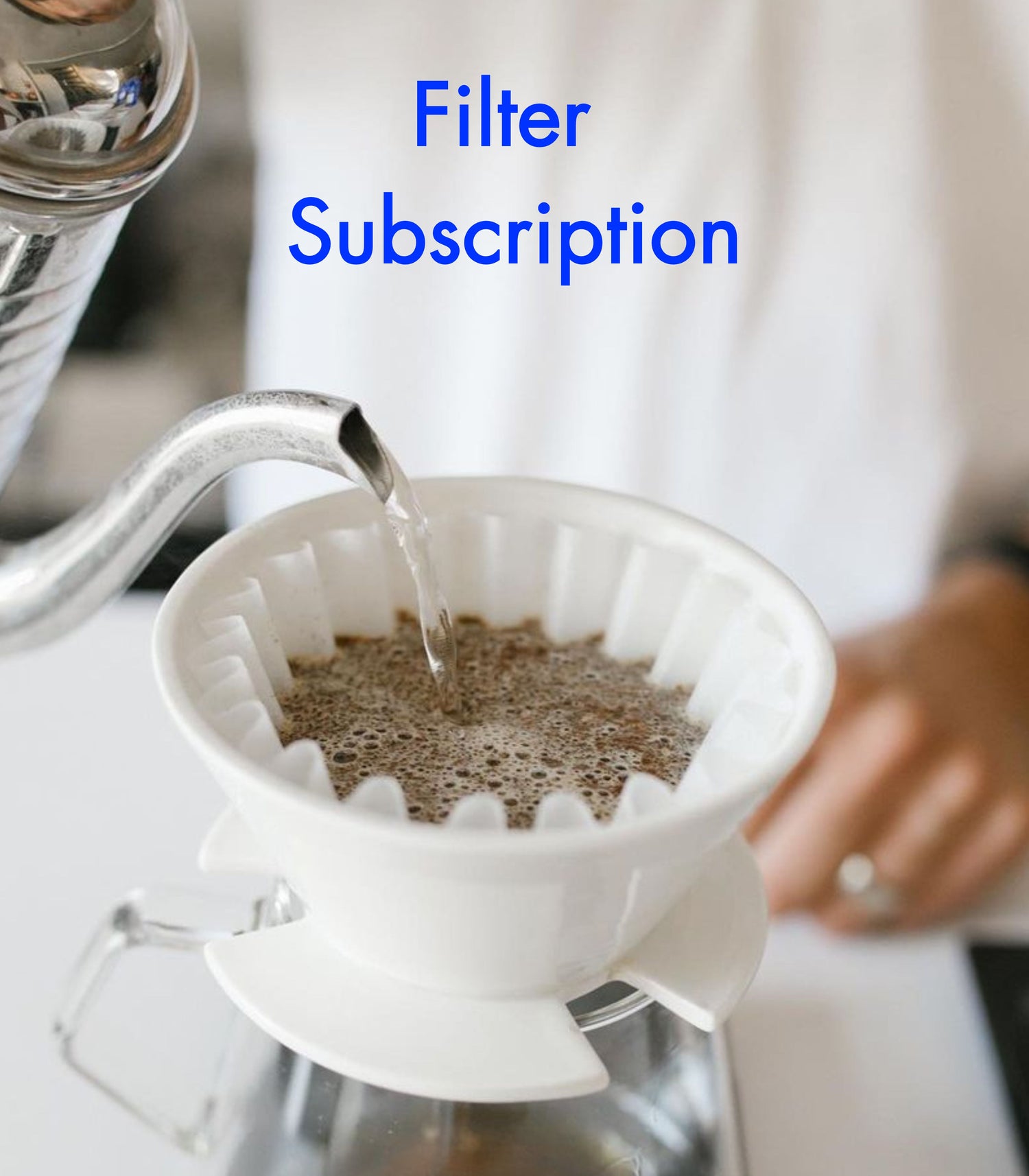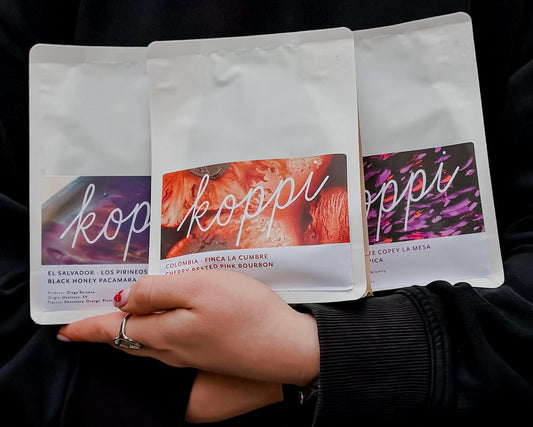This month we are teaming up with Copenhagen based Coffee Collective, there's no better way to enjoy the holidays and close the year!
We visited them recently to select your coffee and also get a better view of how things work. If you want to see this then please hop back to our Journal and watch our film with Coffee Collective, next week.
We have put some of the key points below for you, as a taster!
Coffee Collective roast on a Loring. Their green coffee room is temperature cooled at around 16 to 19 degress celcius, this mimics the underground cellar where the majority of greens are stored.
The first coffee for us this month is exclusive and also new to Coffee Collective!
Up until 2016 it was forbidden to process natural coffees in Guatemala. So this is the first time Coffee Collective have tried this type. Exciting times and expect a very fruity cup!
Our other coffee is the Ethiopian Alaka, we have had this previously, it is going to be great! Tends to be more fruity than floral.
In the film we get to see how Coffee Collective make their coffee so consistent, taking us through a colour spectrum and cupping to get tweaks right on the roast.
Other key aspects highlighted are water and brewing, both key to getting a great cup.
For water, use a type that enhances the flavours of the coffee. Really pushing for a water with low bicarbonate content.
For brewing they recommend the use of Kalita Wave. This is the most consistent across the board as it allows a consistent pour and the flat surface bottom allows for an even extraction. For the pour, you don’t want to go angled, instead go for a vertical drop down and work to avoid holes or channelling. You do not want to overextract some parts of the coffee (bitter) and underextract in other parts (sour) as the final cup will lack sweetness and be a little bitter / sour. Keep practising and perfect your brew!
For those that have been subscribing a while you will know this isn’t the first time we have featured Coffee Collective. We did a great interview with them the first time round, so for long time subscribers and those new, please find some excerpts from that first interview.
Is there a moment where you believe you have really made a difference and makes you proud, please describe it.
Signing the contract with the Kieni factory and telling them we wanted to pay them morethan what they’d asked for. Just seeing their faces and disbelief that we wanted to pay a higher price than they expected really struck a chord with me. I remember the first year when we bought 20 or 30 bags at a high price and the chairman of the co-op told me “I hope The Coffee Collective can come back and buy more.” Fast forward to now and we’re buying around 300 bags at an even higher price. That development alone makes me really proud and makes all the hard work worth it.
Is there a coffee you roasted that remains significant in your memory for the way it turned out or a story that lives around such a moment? E.g. your first, a surprise batch, a flavour note that still makes you smile?
I’ll never forget our first roast when we had just set up our roastery in a storage facility near the Copenhagen Airport. We had a 12 kg Probat with the exhaust pipe going out through the door to the parking lot. We roasted a Guatemalan coffee to test out the roaster and we were all so excited. Of course, it turned out pretty baked, but from memory… it still tasted pretty good.
Where is coffee headed with interest in specialty coffee rising and climate change threatening to cause extinction of many varieties?
I think we’ll see coffee heading in two directions in producing countries. We’ll see more and more low-altitude coffee of low quality to satisfy a growing market demand and at the same time we’ll see increasing competition for specialty coffee, as the supply doesn’t meet the demand. Hopefully this will translate into higher earnings for those farmers!
What changes have you seen within farming communities and wider since you first started work?
Working with some of these places for up to 10 years, it’s satisfying to see a relationship build and trust grow. As a company having close relationships with producers we do hear more honestly what the realities of a coffee farmer are. That’s a change from the beginning where a lack of trust would mean you wouldn’t get the full picture. Another thing is the development of infrastructure for the coffee producers. Looking back at Kieni 8 years ago and then seeing the improvements in that area today is uplifting with better roads and water towers as visible examples.
What more needs to be done?
On a wider scale we’ve still got much to improve on. Farmers are struggling and not seeing nearly enough benefit of the global specialty coffee scene. In light of global warming testing the limits of coffee growing regions, devastating coffee leaf rust destroying huge crops and the inconsistent and fluctuating coffee market prices, the young generations aren’t inclined to produce coffee for a living. Would you? It means the average age of coffee farmers are pushing 58 years. I’m worried what we will we do when those farmers are too old to take care of their farms and their children aren’t willing to take over? Fortunately, we as consumers hold the power to vote with our wallets and ask questions about where our money goes. We should really be asking if the farmer actually benefitted from the transaction.
Where do you see Coffee Collective within the superb Scandinavian coffee scene? Do you feel there is anything that sets you apart from others?
I think we’re blessed in the Nordic region with many great roasters and benefit from having access to tasting each other’s coffees and pushing ourselves. I guess we’re one of few roasters doing all the sourcing ourselves and buying all our coffee directly from the producers. It means we have a selection of coffee that’s entirely our own.
Your collaborations move through ice cream, beer, food – what drives this expansion?
We think there’s so much unrealised potential in coffee, and we have a desire to show the variety of flavours that coffee can offer and put this in new contexts. The classics like the espresso and cappuccino are great, but there’s so much room for exploring new combinations and ways of showing coffee. I think we’re all driven very much by innovation, but also by keeping coffee the centre of things. So you won’t see us making something that isn’t related to coffee. New innovations also serve to allow us to buy more coffee from the farmers, providing new streams of revenue for them.






